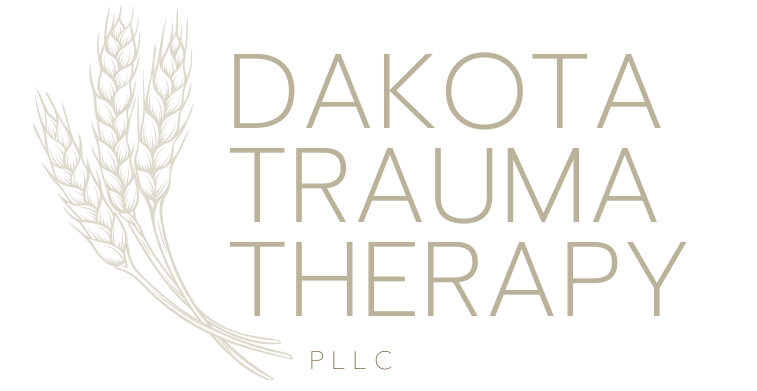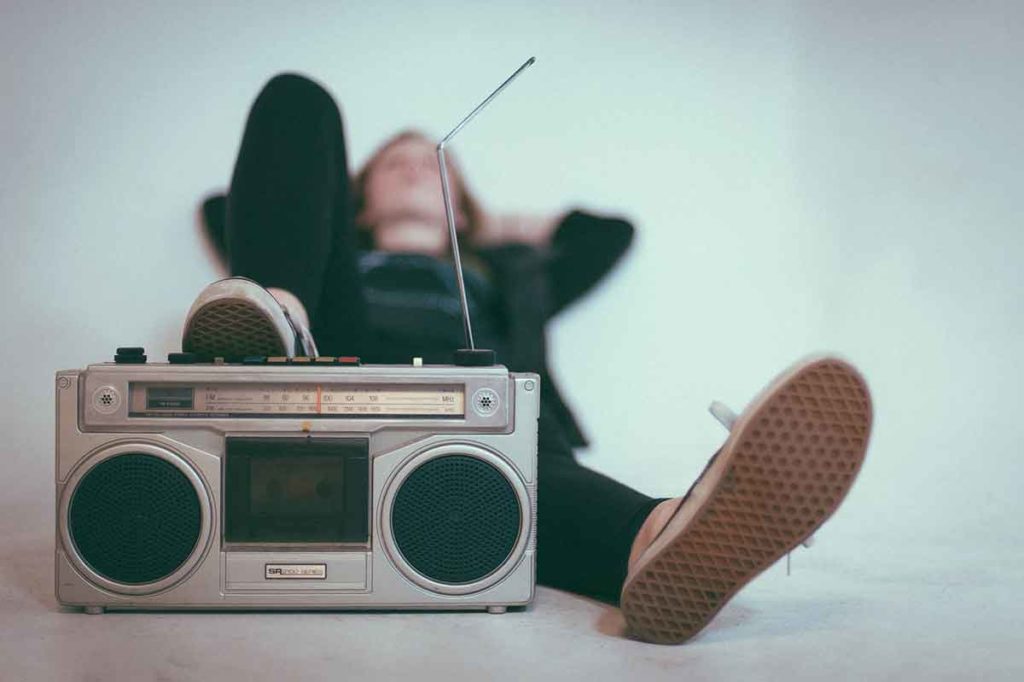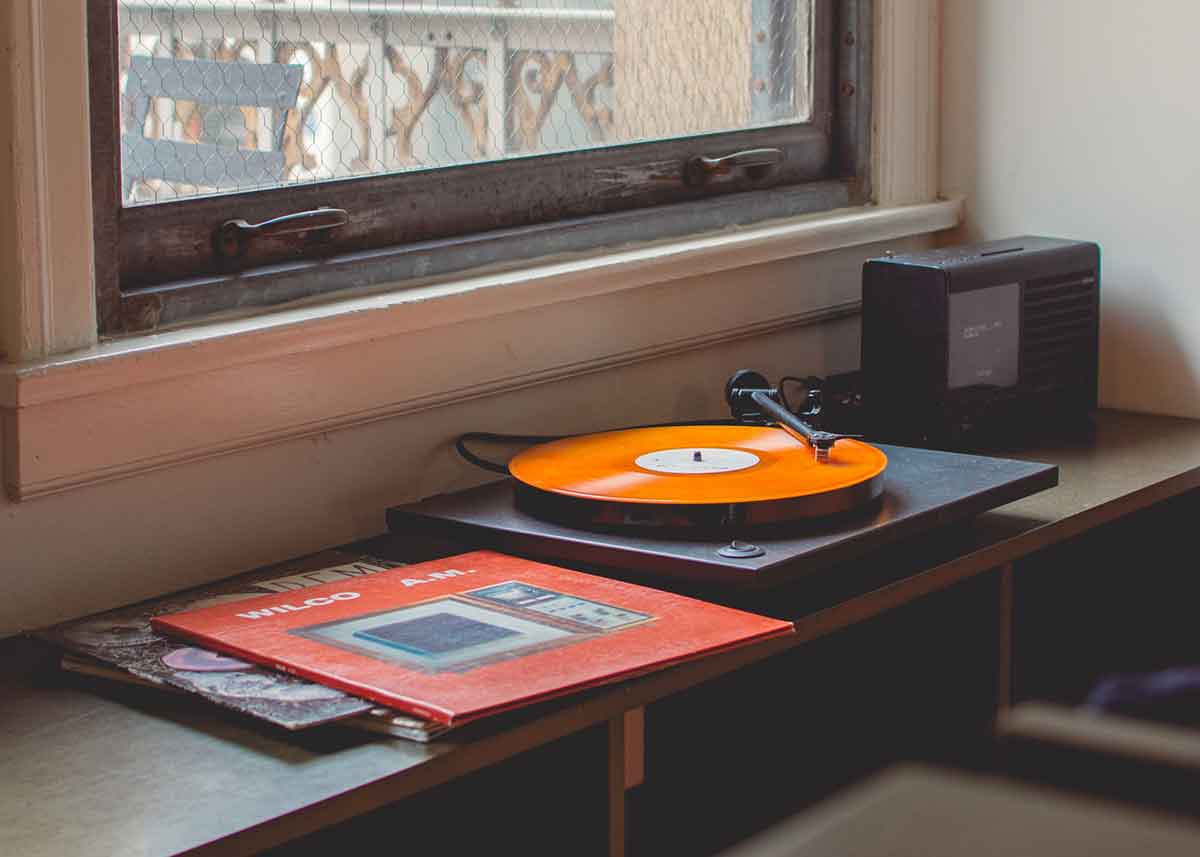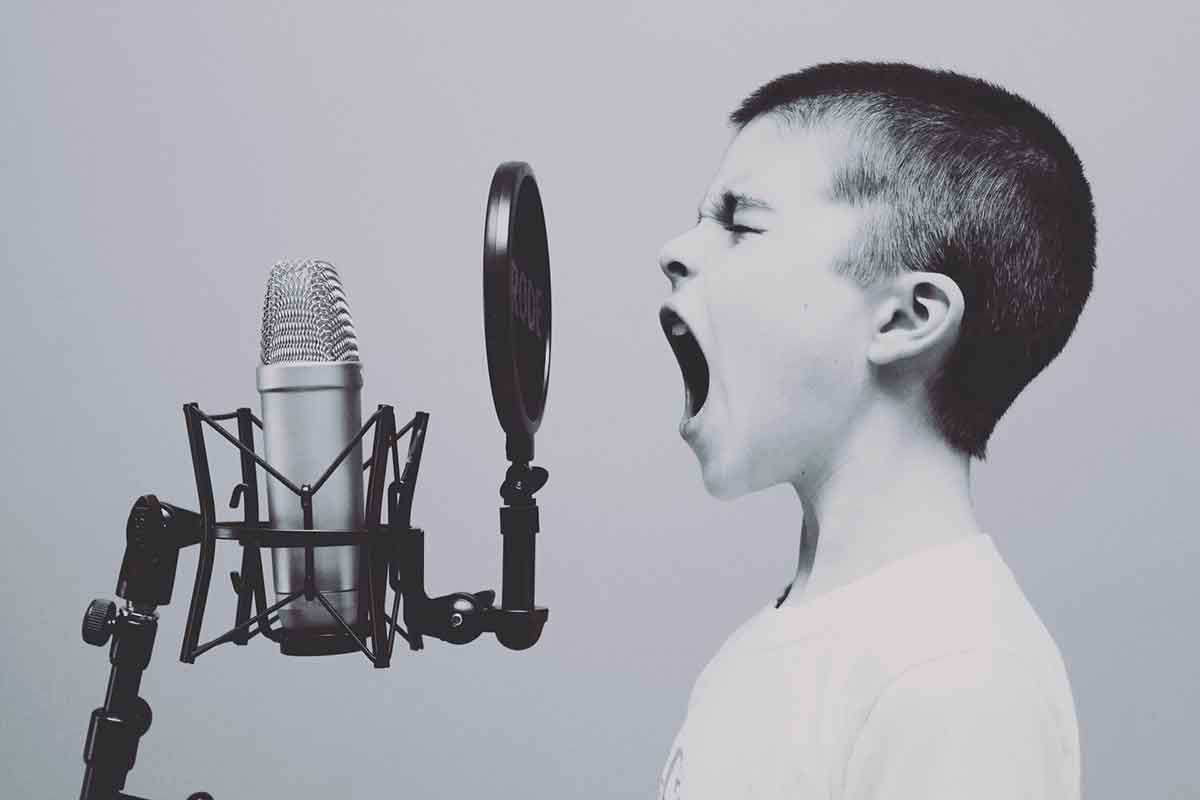Anxiety is a normal, unavoidable aspect of life that may be helpful in various circumstances. It emerges when we are uncertain about what will transpire or when we sense danger. And even a little bit of anxiety can harm our capacity for living a useful life.
Our heart and breathing rates rise when we are anxious, and many other bodily systems get overloaded. Both our emotions and whole physical health are impacted by anxiety.
In some people, this anxiety may develop into disorder or high-functioning anxiety that interferes with their daily lives or prevents them from regularly carrying out their daily activities. In this situation, counseling or treatment is necessary.
Almost everyone must have experimented with different coping skills for anxiety. Discovering techniques to control your anxiety levels is crucial for your health and helping you feel better overall.
While everyone manages their anxiety in a different way, music is a well-liked alternative that has scientific support for its ability to do so. You may assist yourself, and the people around you relax, calming down, and rejuvenating your mind by listening to music. Even though it is not physical therapy, it gives people who are suffering solace. (1)
The mind is greatly influenced by music. Different musical genres may instantly change a person’s mood and aid in experiencing and processing various emotions, including joy, enthusiasm, melancholy, tranquillity, and reflection.
This blog is dedicated to music therapy and how it helps people with anxiety and other pertinent information. In addition, we will look at some of the best music suggestions that may help you calm down, so let us get started.
What is Music Therapy
Music therapy uses the natural mood-lifting properties of music as a therapeutic approach to help individuals improve their mental health and overall well-being.
A person’s reactions to and connections with music are used in this goal-oriented approach to support constructive improvements in mood and general well-being. Singing, dancing, discussing, or simply listening to music are examples of activities that may be used in music therapy. (2)
Music therapy helps people feel better by utilizing music’s potent therapeutic properties. Music therapy may also incorporate improvisation, which entails playing music in response to a feeling or a subject. It serves as an alternative to other therapeutic approaches like counseling or cognitive-behavioral therapy (CBT). (3)
Music therapists use a person’s responses and associations to music to improve mood and general mental state. It can assist with focus and attention problems, assertiveness, individuality, and effective communication.
This type of therapy may benefit those struggling with depression and anxiety. It is open to all; you do not need to have any musical training to participate in music therapy or benefit from it.
Parts of the brain that are involved in feelings, memory, perception, and movement are activated by music. Medical professionals view music as a beneficial procedural assistance tool. To soothe anxious patients and maintain their composure, many surgeons frequently play music while conducting surgery or even during consultations with their patients. The leading cause is that endorphins, also known as happy hormones, are thought to be induced by music. (4)
Types of Music Therapies
Music therapy can be an active procedure in which patients participate in the creation of music or a passive one in which patients just listen to or react to music. Some therapists could employ a multifaceted strategy that combines active and passive musical engagement. There are several proven methods for music therapy, such as:
Cognitive-behavioral music therapy
Combining music with cognitive behavioral therapy is known as cognitive behavioral music therapy. Music is employed in CBT music therapy to change certain tendencies and promote others. This method is organized and not improvised; it usually involves dancing, singing, or playing musical instruments.
While also addressing patients’ cognitive and emotional needs, CBT-music therapy enhances engagement. The use of music in CBT has been demonstrated to significantly reduce aggressiveness, sadness, and anxiety, particularly among students. (5)
Benenzon music therapy
Benenzon music therapy is one of the most influential models that integrate the act of composing music with some psychoanalytical concepts. Finding your musical sound identity—a term used in Benenzon music therapy—describes the exterior sounds that most accurately reflect your inner psychological condition. (6)
Analytical music therapy
Analytical music therapy aims to help you communicate your underlying ideas by singing or playing instruments in an improvised musical conversation so that you may later reflect on them and talk to your therapist about them. If you have problems communicating, it might be helpful to convey your thoughts. (9)
The Bonny method of guided imagery and music
A music-centered depth approach to transformative therapy known as the Bonny Method of Guided Imagery and Music uses specific classical music sequences to encourage the emergence and progression through inner experiences. With this approach, you describe the emotions, perceptions, recollections, and mental images you have when listening to music. (10)
Nordoff-Robbins music therapy
Creative music therapy is another name for Nordoff-Robbins music therapy. This approach entails playing an instrument while the therapist provides accompaniment with another instrument. This improvising approach employs music to facilitate self-expression and effectively address inner thoughts. (11)
Community music therapy
Community music therapy is a type of music therapy that considers the broader cultural, organizational, and social environment. This style is centered on the use of music to create community transformation. It is carried out in a group context and necessitates a high degree of participation from every participant. (12)
How does Music work for Anxiety?
The way music affects the brain is quite complicated. Different parts of the cognitive system process all aspects of music, including pitch, speed, and melody.
For example, the cerebellum handles rhythm; the frontal lobes analyze emotional impulses generated by music and a small fraction of the right temporal lobe aids pitch comprehension. When exposed to intense music, the brain’s reward region, known as the nucleus accumbens, can create significant physical indicators of delight, such as shivers. (13)
The release of certain hormones, which are inclined to develop anxiety, may be influenced by music. Reduced levels of stress hormones like cortisol and adrenaline, which are affected by music, can instantly aid in the relief of anxiety symptoms.
Music can also cause the production of endorphins, hormones that can improve mood and reduce pain, as well as the feel-good hormone dopamine. (14)
Effectiveness of Music for Anxiety
Numerous studies indicate that music therapy can help people feel less anxious, including cancer patients, persons having surgery, and people entering critical care units. According to certain research, listening to music may also lower blood pressure, and pulse rate, directly affecting how stressed a person feels. (15)
There is evidence to support the idea that individuals who are receiving music therapy report feeling less anxious right after the session, suggesting that it may be a practical method for symptom relief right away. (16)
Studies show that music therapy helps lessen the symptoms of depression and that this effect is more significant in patients who get music therapy in addition to established treatments for depression and anxiety, such as talking therapy. (17)
Researchers investigated the viability of combining music therapy and cognitive-behavioral therapy (CBT) to treat depression in 2016. The preliminary findings were encouraging, but more study is required.
One of the main symptoms of anxiety is difficulty falling asleep, such as insomnia. Many people discover that music can reduce anxiety by assisting with sleep. Music is a less intrusive, more cost-effective, and independent way to self-manage a disease than drugs and other frequently suggested therapies for insomnia. (18)
According to one study, music therapy during childbirth may be a beneficial and practical way for women who are in labor to manage their pain and reduce their anxiety. (19)
Music therapy is a powerful approach to help individuals recuperating from surgery reduce their levels of pain, stress, heart rate, and blood pressure when combined with regular post-operative medical care. (20)
How is Music Therapy Done?
You will start by deciding your goals while engaging with a music therapist. If you are anxious, you might expect listening to music to help you feel happier and more upbeat. Music therapy could also benefit other anxiety symptoms, including sleeplessness, hypertension, or difficulty concentrating.
You could play an instrument, listen to music from various genres, or even write your songs during a music therapy process. Your therapist may invite you to perform or sing. Your therapist could suggest improvisation, or they might have a predetermined format to which you should adhere.
You can be instructed to pay attention to your feelings while carrying out these chores or let your emotions guide your behavior. You could play or sing loud, quick, and discordant chords.
You may experiment with different emotional changes with the music. Your music therapist can suggest that you make or listen to music in calm, quiet, soothing tones if you exhibit anger or tension.
While individual music therapy sessions are frequently offered, you may also decide to take part in group sessions if they are offered. Sessions with a music therapist can occur anywhere they practice, including a clinic, community health center, a private home, a rehabilitation center, etc. Whatever the location, you and your therapist will be in a quiet space without any outside disturbances.
Benefits of Music
Every age group, even very young children, can benefit from music therapy since it can be highly individualized. It is also flexible and beneficial for those with a range of musical experience levels and physical or mental health difficulties.
Some of the primary benefits offered by music therapy are as follows:
- Brain areas that control memory, emotions, movement, sensory relay, certain involuntary activities, decision-making, and reward are activated by music.
- Practicing and playing a musical piece may enhance one’s memory, coordination, reading, and understanding. It can also teach one accountability and determination.
- Some of the main signs of anxiety, such as heart rate and blood pressure, tend to be stabilized by music.
- Moreover, music can relieve weariness by easing tense muscles.
- Endorphins, often known as happy hormones, are released by music and may lift your spirits and make you feel good.
- An excellent piece of music may promote emotions of tranquility.
- For kids and teenagers with developmental and learning difficulties, music helps sharpen motor skills and enhance communication.
- People can express themselves creatively via music, making challenging feelings easier to explore.
Tips to Make Music Effective
Using the following tips, you may use music to enhance your mental health and general wellbeing.
- A smart move is to start a music diary. Writing in a journal is a method for gathering ideas and emotions. By jotting down those emotions, you can focus better on the here and now rather than on anxiety or suffering.
- Listen to music that suits your mood. When you detect that your mood is down, start listening to music that expresses that feeling. After that, choose tracks that alter your feeling over time.
- Consider sometimes listening to fresh music. Your intellect may be stimulated in a useful and entertaining way by listening to new music. Even familiar music could challenge you to discover something new.
- Get your hands on a musical instrument and pick up new talent. You might feel inspired and motivated by trying something new.
- You may also discuss your concerns with a music therapist. As specialists in using music to achieve any of your goals, they can help you reap the benefits of music more effectively.
Music Recommendations for Anxiety
The following songs may help you calm your mind or understand your anxiety in a better way.
Om Namah Shivaya by Deva Premal
The singing of Premal and the accompanist Mital’s music evoke intriguing chants from bygone eras. Her crystal-clear voice and the almost mesmerizing, slow-moving music have a profoundly reassuring and consoling effect.
Weightless by Marconi Union
A startling 65% reduced participants’ total anxiety as a result of the Weightless song, and their typical physiological resting rates were decreased by 35%. Its perfectly crafted harmonics, beats, and chord progressions assist in lowering levels of cortisol, blood pressure, and pulse rate in listeners.
Someone Like You by Adele.
Although the topic of loss is explored in this famous song, many people find that the languid tempo and calm backdrop promote introspection. According to some, the piece’s emotional power results from subtle, unanticipated shifts in the melody or ornamental notes that produce a melancholy strain.
Hurt by Johnny Cash
One of the all-time most compelling and heartfelt songs, Hurt by Johnny Cash, talks profoundly about mental health. This song also highlights how our brains are consumed with pain when anxious. The music could be relatable and compassionate to those who are anxious. This song may have particular importance for individuals who have experienced the loss of loved ones due to illness or premature death or for those who experience anxiety due to PTSD.
Ocean Eyes by Billie Eilish
Billie Eilish recorded the song Ocean Eyes when she was just 14 years old. It is about experiencing intense love and being wounded. It looks at how we may love someone without question, even when they are seriously harming us. This song has a laid-back, tranquil vibe. In this song, Billie’s voice is soft and lovely. The melody is quite calming, despite the possibility that the lyrics could make you grieve.
Best Part of Me by Ed Sheeran (feat. YEBBA)
The delicate song Best Part of Me is about being in love yet still feeling uneasy and uncertain. This piece termed a peaceful ballad, features highly relatable lyrics and a soothing tune that will undoubtedly relax you after a hectic day. The song also discusses how amazing it feels when somebody embraces your love, even though you are having a hard time loving yourself.
Ambient 1: Music For Airports by Brian Eno
This music’s soundscape creates a splash of musical influences that mirror the rhythm of our physiological processes, giving us time to adjust to the slow speed and unwind. One reviewer said that it is the type of music one could hear in heaven speaks volumes about how calming it is.
Numb by Linkin Parkin
The song Numb, which accurately captures the feelings of despair and anxiety, is arguably the most distinctive and evocative music on mental health. This song’s lyrics talk about how difficult it is to live up to people’s expectations of us. Anxiety is usually a byproduct of losing control of our lives. Our lives may become quite stressful if we are asked to be someone by people around us that we aren’t. This pressure may also lead to performance anxiety and chronic stress.

Conclusion
Music therapy is a useful and pleasurable technique for lowering the symptoms of many disorders, including sadness and anxiety, even though it cannot treat any mental health disease.
People may express their emotions and analyze their experiences in a unique and approachable way through music therapy. Music is being used for its potent ability to affect mood and emotions. Its soothing properties are also essential to mention.
In addition to assisting with mental health issues, music therapy provides many other advantages, including giving one a creative outlet, enhancing education and cultural understanding, and enhancing cognitive abilities like recall.
If you are considering music therapy for your anxiety, it is a wise idea to consult a music therapist to reap the benefits of it more effectively.




